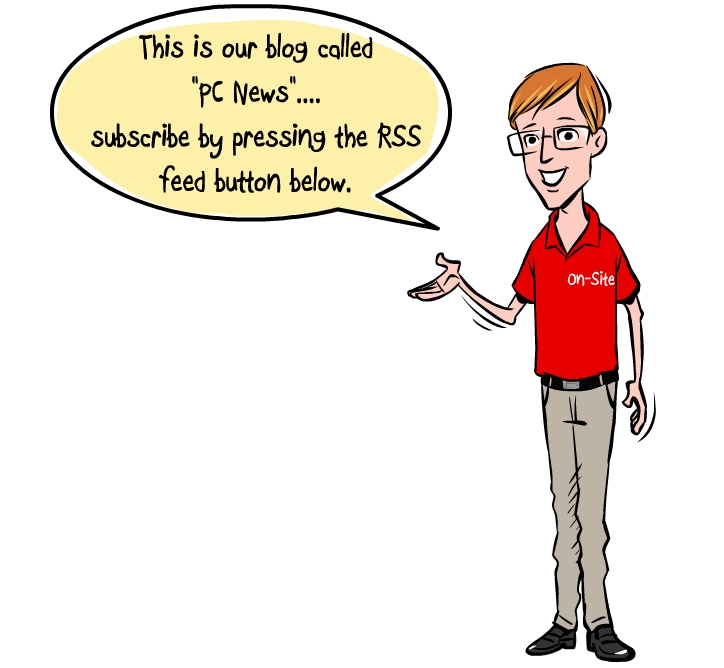Does your computer ‘hourglass” constantly? Do error messages frequently pop up on your screen? Do webpages load slowly? Some of this is normal but if it occurs regularly your computer might need a tune-up. Your car, for instance, reliably transports you to and from work, to get your food, to the doctor when you are sick, and to your relatives when you want to visit. Important stuff! But, it only does these things if you tune it regularly; if you change the oil, check the battery change the spark plugs, brakes etc. Why would a computer be different? It’s not!
It only remains a useful tool for exchanging email, communicating, researching topics, and creating and storing your pictures and other important files, if you give it the proper care and maintenance that you would give any other expensive tools or possessions. Do you know how to keep your computer in tune? How much did you pay for your computer? How about the software? What value do you place on the files saved on its hard drive? The figure is probably in the thousands, so learning how to keep your desktop computer or laptop in tune is important. Here are my suggestions on how to do it.
Uninstall Unnecessary Software
Most of the computers that come into my shop are full of software that has been installed, accidentally. Updates, honest utilities, and even purchased software often comes with add-ons, tool-bars and additional software bundled that is unnecessary and can wind up bogging down your computer. Go to start >Control Panel>Programs>Add/Remove and review the software on your computer. “Google” or “Bing” any software that is not from Microsoft or another known source and read about it. If you determine it is an accidental install — uninstall it. Especially look for toolbars which tend to be intrusive , pervasive, and “pre-viral.” Just make sure you don’t uninstall any of your system software that is necessary for your computer to operate. Again, if you have any questions about the software, Google it or Bing it and see what it is responsible for before you uninstall it.
Delete Temporary Files and Fix your Registry
Over time your computer will build up a long list of temporary files associated with your web browsers and other software on your computer. They accumulate as a result of programs shutting down incorrectly and forgetting where they left their temporary files, browser hiccups, tracking information kept by websites to monitor your activity and a for a myriad of other reasons. To clean these fragments up, download the free utility called CCleaner from Piriform to delete temporary files. The website is http://www.piriform.com/ccleaner and the free version is all you need. It’s not necessary to upgrade, in my opinion. Also, use the registry repair tool to fix your registry which also becomes fragmented over time from normal use.
Run Virus Removal Utilities Often
Malware, Trojans, Spyware, and Viruses often build up on computers over time. Computer viruses are like human viruses. You probably have some living on your computer at this moment. Some never cause much problem and some can stop your computer in its tracks. But, usually I see a slow accumulation of infections over time that eventually render a computer nearly useless. This can be prevented by running virus removal utilities on a regular basis. There are plenty of these programs that you can run on a weekly or monthly basis to remove small viruses that might have slipped in. A good one for consumer use is Malwarebytes. The free version is available at http://www.malwarebytes.org. Just make sure to stick with the free version –don’t do a free trail of the professional version by accident (remember I was just talking about accidental downloads). Note: Many viruses require professional virus removal to be removed completely. If your computer is redirecting you to websites that you didn’t command it to, playing sounds randomly, or running extremely slow you might have serious infections and you should call a local computer repair shop immediately.
Eliminate Aftermarket Browsers and Reset Internet Explorer
Browser health is an important aspect of keeping a computer in a well-tuned state. In fact, it’s one of the most important components. Aftermarket browsers such as Mozilla Firefox and Google Chrome can be great. Sometimes they provide functionality and “bells and whistles” one can’t get with ‘plain ole’ Internet Explorer. But often over time these browsers can harbor and hide a myriad of infections which can degrade your computer internet browsing experience. For a minor tune up learn how to reset IE, Google Chrome and Mozilla Firefox. For a major tune up you can eliminate Google Chrome and Mozilla Firefox – then reset Internet Explorer. You can reinstall aftermarket browsers later.
Make Sure you Only Have One Antivirus Suite
The software conflict that causes the biggest resource drain on computers is double anti-virus installations. Often this happens because when a free trial ends, or new antivirus software is purchased, users fail to uninstall the old antivirus software before installing the new. Antivirus software is one of the most resource-intensive applications you will run on your computer. It runs all the time attempting to scan and detect viruses in “real time,” which translates into a big drain on system resources. Therefore, if two antivirus suites are installed on a single machine, it can become practically unusable. Make sure to look in the add/remove section of the control panel and completely uninstall any old anti-virus installations before installing a new one.
Tuning up a computer gets rid of all of the excess garbage that has built up on your machine over time. So, try your own computer tune-up. “Google” any questions you have and read what others are saying about it. Next time you’re slamming your keyboard in frustration, think twice about buying a new computer or taking it to the repair shop. It may just need a good tune-up, and now you know how to do it yourself!


